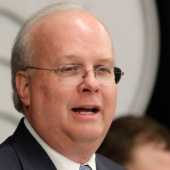Barbara Ehrenreich Blasts "Pink Ribbon Feminism"
Barbara Ehrenreich Blasts "Pink Ribbon Feminism"
Barbara Ehrenreich has become my favorite cranky public figure. Her most recent article at the Huffington Post echoes and builds on themes she developed in "Welcome to Cancerland," which details her experience as a cynic who was diagnosed with breast cancer. Breast cancer patients are constantly urged to "think positively," to follow the pink when they buy products, to purchase teddy bears with pink ribbons, and to be relentlessly cheerful at all costs.
I haven't read her latest book, Bright-Sided but I assume that it expounds upon these themes as well. We as a culture despise what we see as "negativity," even if it's just rational discourse that happens not to be plastered with smiley face stickers.
Such is Ehrenreich's Huffington Post article, which takes aim at what she feels is the feminist movement having been co-opted and redirected towards breast cancer awareness. "In the post-feminist United States, issues like rape, domestic violence, and unwanted pregnancy seem to be too edgy for much public discussion, but breast cancer is all apple pie."
I think Ehrenreich may be tilting at straw men with this, but she makes an excellent point. People are afraid to be publicly contentious. (Real people, I mean. Not the ones on TV.) Feminism is inherently confrontational, even if that confrontation is handled gently and deftly, it is still an ideology that deliberately goes against the flow.
Breast cancer "awareness," by contrast, is utterly wholesome and uncontroversial. Once we earned the right to say the word "breast" in public without being castigated by censors (both official and unofficial), breast cancer became a serious topic of conversation in the public discourse. Although it used to carry a stigma, talking about breast cancer is unequivocally acknowledged as "the right thing to do."
The problem is when talk of breast cancer pushes other issues into the background. If we're walking for breast cancer awareness, we aren't walking for domestic violence awareness. Or for pay equity. Or for leisure time/housework parity.
Ehrenreich takes her line a little farther, including some dark - but perhaps accurate - accusations against the cancer industry. Oncologists only get paid if someone gets cancer, and the same can be said for the pharmaceutical companies which manufacture chemo drugs. Cancer is a multi-billion dollar industry right now. With that much money on the line, who's to say where truth ends and marketing lies begin?
One thing Ehrenreich touches on only briefly here is something she discusses at length in "Welcome to Cancerland." We spend an awful lot of time and energy trying to find a cure. How about if we spent that time and energy to prevent breast cancer, instead? The chemicals which are known to cause breast cancer are rampant, and well known, and - not incidentally - pumped into our lives via large corporations who have a vested influence in turning people's attentions elsewhere.
It would be vastly expensive to eliminate breast cancer-causing carcinogens from our food, air, and water. More so than finding a cancer cure? It's hard to say. But one thing you can say is that the company that discovers the cure for breast cancer will be poised to make a fortune off the resulting sales.
The same cannot be said for the company that eliminates carcinogens from its products.


